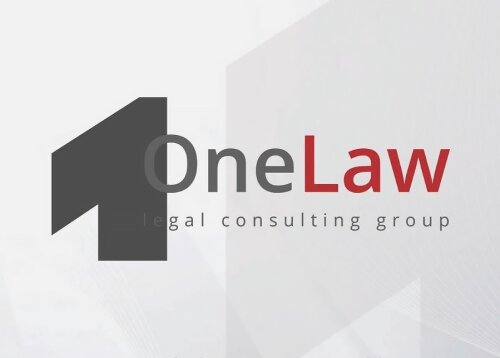Best Commercial Real Estate Lawyers in Yekaterinburg
Share your needs with us, get contacted by law firms.
Free. Takes 2 min.
Free Guide to Hiring a Real Estate Lawyer
List of the best lawyers in Yekaterinburg, Russia

About Commercial Real Estate Law in Yekaterinburg, Russia
Commercial real estate law in Yekaterinburg, Russia, encompasses regulations and legal practices related to the ownership, use, and transfer of commercial property. This can include offices, retail space, warehouses, industrial units, and any other type of property used for business purposes. Due to Yekaterinburg's status as a significant business hub in the Ural region, commercial real estate is both in high demand and constantly evolving, making the legal landscape complex.
Why You May Need a Lawyer
Seeking legal help in commercial real estate is essential for various reasons. Lawyers can assist in negotiating and drafting leases, ensuring compliance with zoning laws, facilitating the purchase or sale of a property, resolving disputes, and providing guidance on investment and development projects. Additionally, they can help navigate the complexities of Russian property law, which might be challenging for foreign investors and businesses unfamiliar with local legislation.
Local Laws Overview
The key aspects of local laws relevant to commercial real estate in Yekaterinburg include land use and zoning regulations, construction permits, environmental compliance, and the specifics of the lease and acquisition processes. It is also important to be aware of the nuances of the Russian Civil Code as it pertains to property rights, contracts, and the responsibilities of parties involved in commercial real estate transactions. Compliance with all federal, regional, and municipal laws is crucial in order to avoid legal disputes and financial losses.
Frequently Asked Questions
What is the difference between "право собственности" and "аренда" in commercial real estate?
In commercial real estate, "право собственности" translates to "ownership right," while "аренда" means "lease." Owning a property gives you full control and rights over it, while leasing involves renting the property from the owner for a specific period under agreed terms.
How is the value of commercial real estate determined in Yekaterinburg?
Valuation of commercial real estate in Yekaterinburg is typically done by professional appraisers who consider factors like location, market trends, property condition, and current economic conditions.
Are there specific tax implications for owning commercial property in Yekaterinburg?
Yes, owners of commercial property are subject to property taxes, and these taxes are based on the cadastral value of the property. There may also be other tax implications depending on the property's use and the owner's legal status.
What should a commercial lease agreement in Yekaterinburg include?
A commercial lease agreement should include terms about the duration of the lease, rent amount, payment terms, responsibilities for repairs and maintenance, conditions for termination, and provisions for dispute resolution.
Can foreign entities own commercial real estate in Yekaterinburg?
Foreign entities can own commercial real estate in Yekaterinburg, but they may face some restrictions and additional regulations, such as obtaining necessary permits from government bodies.
What is a typical due diligence process before purchasing commercial property?
A typical due diligence process includes checking the legal status of the property, ensuring that there are no encumbrances or liens, verifying compliance with local laws, inspecting the physical condition of the property, and reviewing financial documents related to the property's operations.
How are commercial real estate disputes resolved in Yekaterinburg?
Disputes can be resolved through negotiation, mediation, arbitration, or litigation in court, depending on the circumstances and agreements between the parties involved.
Are there any government incentives for developing commercial real estate in Yekaterinburg?
Government incentives may be available for certain development projects, especially those that align with regional development plans or contribute significantly to the local economy.
What are common environmental issues that affect commercial real estate in Yekaterinburg?
Common environmental issues include land contamination, waste management, adherence to environmental safety standards, and ensuring proper utilities and infrastructure without compromising ecological regulations.
How can a lawyer assist in a commercial real estate transaction in Yekaterinburg?
A lawyer can provide legal advice, assist with contract drafting and negotiation, perform due diligence, represent clients in disputes, and ensure that the transaction complies with all applicable laws and regulations.
Additional Resources
Those in need of legal advice in the field of Commercial Real Estate in Yekaterinburg can consult the Russian Ministry of Construction, Housing, and Utilities, the Chamber of Commerce and Industry of the Russian Federation, and the Federal Service for State Registration, Cadastre and Cartography (Rosreestr). Professional associations for realtors and developers may also prove helpful. Additionally, local law firms specializing in real estate often offer seminars and guides on the subject.
Next Steps
If you need legal assistance in Commercial Real Estate, the first step is to consult with a reputable local attorney who specializes in this field. The lawyer can provide a preliminary assessment of your case or transaction and advise on the best course of action. It's also advised to conduct your own research and gather all relevant documents before meeting with your lawyer to ensure a productive consultation.
Lawzana helps you find the best lawyers and law firms in Yekaterinburg through a curated and pre-screened list of qualified legal professionals. Our platform offers rankings and detailed profiles of attorneys and law firms, allowing you to compare based on practice areas, including Commercial Real Estate, experience, and client feedback.
Each profile includes a description of the firm's areas of practice, client reviews, team members and partners, year of establishment, spoken languages, office locations, contact information, social media presence, and any published articles or resources. Most firms on our platform speak English and are experienced in both local and international legal matters.
Get a quote from top-rated law firms in Yekaterinburg, Russia — quickly, securely, and without unnecessary hassle.
Disclaimer:
The information provided on this page is for general informational purposes only and does not constitute legal advice. While we strive to ensure the accuracy and relevance of the content, legal information may change over time, and interpretations of the law can vary. You should always consult with a qualified legal professional for advice specific to your situation.
We disclaim all liability for actions taken or not taken based on the content of this page. If you believe any information is incorrect or outdated, please contact us, and we will review and update it where appropriate.












